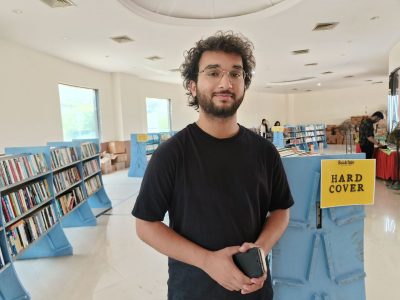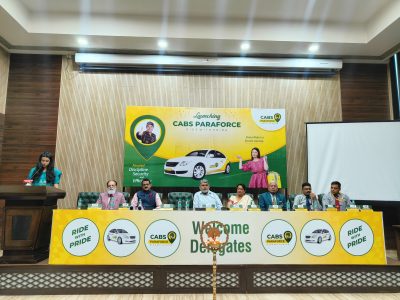Films will have you believe that the ‘free spirits’ are the true heroes. But not everyone has the luxury of indulging in flights of fancy
In recent years, the negative portrayal of engineers in India’s popular culture has often acted as a subtext for something else. The larger target is derision towards regular officer-goers, the millions of Indians engaged in salaried work. By glorifying unconventional “career rebels”, various forms of popular culture have found it useful to scoff at the banality of working hours — though the world runs on the sweat of the salaried and wage-earning class.
More recently in the literary world, reports on writer Kritika Pandey winning the Commonwealth Short Story prize quoted her as saying her parents, like “all aspirational middleclass people”, wanted her to be an engineer. Pandey said she “hated” her engineering college, and that shifting to studying fine arts and writing was something of a fight against the middleclass expectations of her family in Ranchi.
Any small-towner will understand the roadblocks Pandey overcame to detour from the well-trodden path. But such a journey is not always a vindication against the thoroughfare.
There’s a fashionable ridicule reserved for the “conformist” salaried types in the artistic portrayals of contemporary India. Before we identify some of them, it’s interesting to remind ourselves of the biases against the regular workforce vis-à-vis the offbeat professional, or even an idler, in cinematic portrayals. These biases have seeped into popular culture in general, especially with mainstream cinema forming a significant part of it.
Of late, in many mainstream Hindi movies woven around the boy-gets-girl plot, regular work life is portrayed as a serious disadvantage for the romantic prospects of a salaried worker. It’s like Bollywood screenwriters muddled up what JM Coetzee offered in his semi-fictional work, Youth.
These Hindi movies show artistic “free spirits” and non-conformists as lovable, more likely to walk away with the heroine. For instance, in Aditya Chopra’s Rab Ne Bana Di Jodi (2008), the state electricity department employee, Surinder Suri, was on the verge of being cuckolded by Raj, the cool dancing version of himself, before melodrama saved his marriage.
Imtiaz Ali’s Tamasha (2015) almost relegated regular work life to a vice, as if the luxury of indulging one’s wishes and fanciful flights was something everyone can or should afford. Predictably, it was the distance between office work and the “follow your passion” trope that helped Ved get his Tara in the film. One wonders what kind of world we will have if every office worker decides to respond to that follow-your-passion itch.
This hasn’t always been the case in mainstream Bollywood, and it isn’t always the case now. However, a significant number of films have pushed certain stereotypes about conventional professions. In the 1970s, middle-class romcoms by directors such as Basu Chatterjee had a slice of metropolitan office life which, despite certain stereotypes, were sympathetic to 9-to-5 office types. However, they also sometimes caricatured characters who were work-focused.
For instance, one of the key differences between Vijay Anand’s Guide (1965) and RK Narayan’s eponymous novel, on which it was based, was how the work-focused nature of aging archaeologist Marco was caricatured in the film, but not in the novel. In the film, it was contrived as a juxtaposition, perhaps to make the seductive guide Raju more likeable and tempting for Rosie to commit adultery.
However, there was one film that had no such difference with its source. In Devdas, the Bengali novel and the Hindi film it inspired, the plot revolved around the inexplicable appeal of a languishing and hedonistic idler for women who know what they are doing.
In the literary world, two aspects need attention. First, a dismissive attitude towards regular professions doesn’t help in grasping the dignity of ordinariness. Restoring that banality could be a challenging task in literature. Engineering, for instance, might be the default or ingrained choice for millions and the dedicated pursuit of excellence for only a few. But the reality is that it’s performing core functions in important sectors of the economy, while creating and maintaining technical systems everywhere.
The point of individual aptitude is important, but so is the aspect of limited opportunities, and the fact that many cannot identify their own aptitude for a specific role unless it becomes a matter of earning for them. This is also the case with many other conventional professions.
A conversation at the beginning of Upamanyu Chatterjee’s debut novel English, August, (1988) captures this aspect quite well.
The novel begins with a chat in a car between the young IAS probationer Agastya Sen and his Yale-alumnus friend Dhrubo.
Dhrubo: “…But here in Delhi, all over India, education is biding time, a meaningless accumulation of degrees, BA, MA, then an M.PhiL while you join the millions in trying your luck at the Civil Services exam. So many people every year seem to find government service so interesting.”
Agastya: “You’re wrong about education, though. Most must be like me, with no special aptitude for anything. Try your luck with everything, something hopefully will click. There aren’t unlimited opportunities in the world.”
The second aspect in the literary world is that in the absence of any links to the working lives of millions, there is the possibility of writers becoming captives to their perch. It brings a kind of distance which numerous writing tours can’t bridge; it’s almost being out of touch with how people work in the world beyond the writing desk.
For example, when writers Patrick French and Pankaj Mishra were having a spat in the pages of Outlook in 2011, a reader alluded to this point. The reader had remarked that Mishra and French could have handled the situation better if they ever worked in an office. A year later, in an interview with the Hindu, journalist and novelist Manu Joseph recalled the scary experience of attending a writer’s conference in Edinburgh. According to him, it was appalling to see that writers were quite naïve about using their faculties in any other context except the themes on which they wrote.
In the same interview, Joseph suggested that writers should spend some time in a profession, in an office. Ironically, Joseph’s second novel, The Illicit Happiness of Other People — the release of which occasioned this interview — was unsparing in its disdain for the aspiring engineers preparing for the entrance tests in Madras of the 1980s.
Interestingly, even though journalism is a salaried profession and does need office work at different levels, some journalists carry the impression of being associated with an offbeat choice. A few even see it as a “rebel” career.
One is reminded of an interesting incident in a panel discussion. Perhaps sensing that Chandan Mitra, journalist and then editor of the Pioneer, was distancing his identity from a mainstream career choice in India, Mani Shankar Aiyar reminded Mitra of either his failure in clearing or timidity in not attempting the civil services examination. “Journalists are people who either flunked or funked the civil services examination,” Aiyar said.
In restoring the dignity of the ordinary and regular ways in which people earn their livings, popular culture and even the world of letters can find many extraordinary tales too. It’s not only the detour, the thoroughfare too witnesses remarkable journeys, and very useful ones indeed.
www.newslaundry.com





